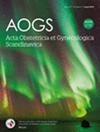Long-term quality of life, vulvar symptoms, and sexual functioning: A cross-sectional study of Norwegian vulvar cancer survivors
Abstract
Introduction
Vulvar cancer survivors are at risk of experiencing impaired health-related quality of life and sexual functioning after treatment. However, studies on survivorship challenges, particularly several years after treatment, are scarce. Our aim was to assess health-related quality of life in Norwegian vulvar cancer survivors more than 5 years after treatment and to compare reported vulvar symptoms and sexual functioning with women from a normative sample of the general Norwegian female population.
Material and Methods
Patients treated primarily for early-stage vulvar squamous cell carcinoma at the Norwegian Radium Hospital between 2006 and 2016 were invited to participate. Health-related quality of life, vulvar symptoms, and sexual functioning were assessed using the EORTC QLQ-C30 and EORTC QLQ-VU34. To recruit a normative sample, the EORTC QLQ-VU34 was also distributed to a sample of Norwegian women with no prior history of cancer. EORTC QLQ-C30 scores among vulvar cancer survivors were compared to “thresholds for clinical importance.” EORTC QLQ-VU34 scores among cancer survivors were compared to those of the normative sample.
Results
A total of 44 (57%) of 77 vulvar cancer survivors completed the questionnaires, and 334 women from the general population were included for the normative sample. A considerable proportion of cancer survivors reported clinically relevant problems: 43% reported impaired physical functioning, while 30% experienced impaired emotional, cognitive, and social functioning. Genital and groin symptoms were significantly more common among cancer survivors than among women in the normative sample. Fewer vulvar cancer survivors were sexually active (9/44 (20%) versus 232/334 (69%)) and they reported a higher degree of sexual dysfunction compared to the normative sample.
Conclusions
Vulvar cancer survivors reported impaired health-related quality of life even several years after treatment. Vulvar complaints and impaired sexual functioning were more common among vulvar cancer survivors than among women from the normative sample.




 求助内容:
求助内容: 应助结果提醒方式:
应助结果提醒方式:


